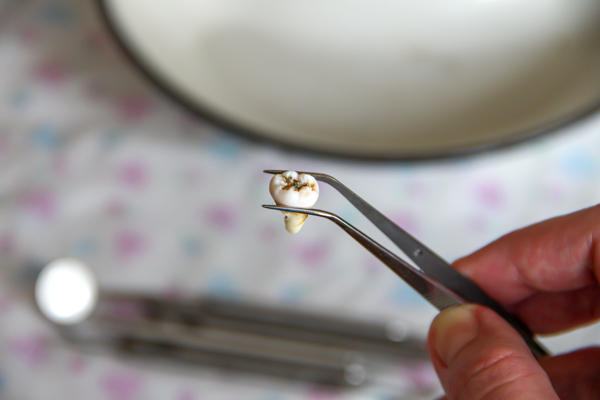The Difference Between Simple and Surgical Tooth Extraction
While preserving natural teeth is always recommended, are sometimes necessary to restore and preserve oral health. Depending on the complexity of the case, a general dentist or oral surgeon may recommend either a simple or surgical extraction. Understanding the differences between these two approaches can provide clarity and peace of mind when preparing for a procedure.
When do you need a tooth extraction?
Dental providers perform tooth extractions when a tooth becomes too compromised to be saved or when leaving it in place causes further complications. For example, severe decay that reaches deep into the tooth structure can lead to persistent pain and infection, making extraction the most effective solution when a filling or root canal is no longer viable. Similarly, gum disease can loosen the teeth by weakening the supporting gum tissue and jawbone; therefore, the provider may need to extract such teeth as part of the patient's gum disease treatment.
One of the most common types of tooth extraction dental providers perform is on impacted wisdom teeth. Impaction means that a tooth does not have enough room to erupt above the gumline properly. This condition can lead to pain, swelling, and potential damage to adjacent teeth, often necessitating extraction.
Other reasons for tooth extraction include significant trauma, fractures, or non-healing infections that render a tooth beyond repair. A thorough examination from a dental provider can reveal whether extraction is necessary and, if so, what treatment option best supports long-term oral health and function.
Types of tooth extraction: Simple vs. surgical extractions
Tooth extractions are classified as either simple or surgical, depending on the complexity of the procedure. Simple extractions are for visible teeth that are relatively intact and allow the provider to remove them without making incisions in the gum tissue. A general dentist typically carries out the procedure using local anesthesia, loosening the tooth before carefully pulling it. Recovery is usually quick and involves minimal discomfort. This approach is commonly used for mildly decayed teeth, baby (primary) teeth that have not fallen out naturally, or teeth removed for orthodontic treatment.
Surgical extractions are more complex, as they are necessary when a tooth is broken at the gum line or impacted beneath the surface. They are often needed for impacted wisdom teeth, severely broken teeth, or cases with extensive root damage that the provider cannot restore. An oral surgeon or dentist with advanced training performs the procedure, using pain management techniques for patient comfort. They will make incisions into the gums to access the tooth, which they may section into smaller pieces for easier removal. Recovery can take several weeks, although the patient should be able to return to work or school within 48 to 72 hours.
Which option is right for you?
A simple extraction is often sufficient for cases where the tooth is fully visible and intact. However, a surgical approach may be necessary when a tooth is broken, impacted, or embedded deep in the jaw. Factors such as pain tolerance, the presence of infections, and existing dental conditions also influence the decision. A dental provider can offer a personalized recommendation based on a patient's specific needs and dental health history.
Get more info in a consultation
Both simple and surgical tooth extractions can help restore oral health. Consulting with a general dentist or oral surgeon allows for a detailed assessment and a discussion of your treatment options. Contact Paramus Emergency Dental & Implant Center to schedule your consultation today.
Request an appointment here: https://www.paramusemergencydentist.com or call Paramus Emergency Dental & Implant Center at (201) 940-1931 for an appointment in our Oradell office.
Check out what others are saying about our dental services on Yelp: .
Related Posts
Emergency dentistry provides the urgent treatments that you need when you need them. This can end up saving your life because untreated dental issues like infections can be life-threatening. Emergency dentistry also gets you relief from any pain and discomfort caused by the oral problem that you are struggling with.Wondering what life-threatening issues quick dental…
Knowing when to seek professional gum disease treatment helps preserve gum health, stop bone loss, and protect natural teeth. Early attention reduces inflammation before it spreads to the supporting bone, affecting chewing comfort. Gum disease, also called periodontal disease, starts when plaque hardens into tartar and irritates the gums. Over time, pockets form between the…
Dental bonding is a fast, cost-effective way to correct small flaws and elevate a smile without extensive procedures. This treatment uses tooth-colored resin that the dentist sculpts directly on the tooth in one visit, preserving healthy enamel and delivering an immediate boost in confidence. Fixing small chips, closing minor gaps, and softening uneven edges are…
Choosing a kid-friendly dentist can make for a positive and comfortable start to a child’s oral health journey. A welcoming environment, experienced team, and tailored approach help make early dental visits feel relaxed and reassuring. The goal is to build trust so that children feel comfortable and even excited about oral health, which can lead…
